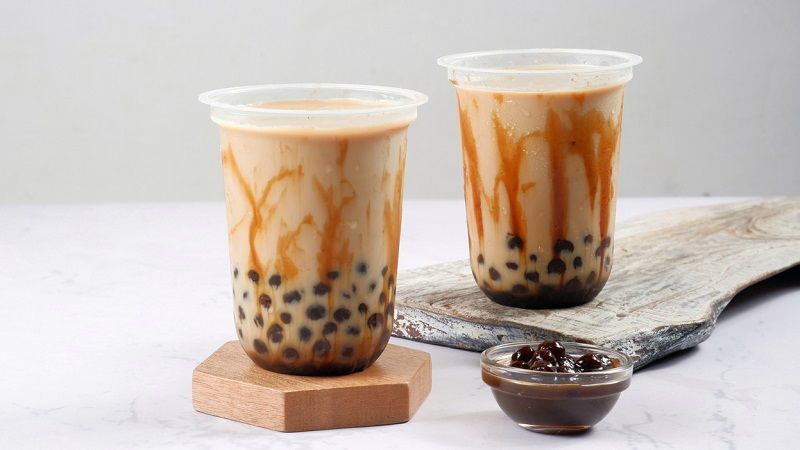
Debunking Myths About Bubble Tea and Tapioca Pearls

Bubble tea is a drink that has gained popularity around the world, but for Muslim consumers, there can be concerns about the halal status of its ingredients, particularly tapioca pearls. In this article, we will debunk some of the myths about bubble tea and tapioca pearls and provide clarity on the halal status of this beloved beverage.
Myth 1: Tapioca Pearls are Made from Animal Gelatin
One of the biggest misconceptions about bubble tea is that the chewy tapioca pearls are made from animal gelatin, which is a non-halal ingredient. However, this is not true. Tapioca pearls are made from cassava root, which is a plant-based ingredient. The pearls are then processed using a combination of heat, pressure, and natural or synthetic additives to create their unique texture.
Myth 2: Tapioca Pearls are Made with Non-Halal Enzymes
Another common myth about tapioca pearls is that they are processed using non-halal enzymes, making them non-halal. While it is true that some tapioca pearl manufacturers may use non-halal enzymes, many brands now use halal-certified enzymes, making their tapioca pearls halal.
Myth 3: All Bubble Tea Contain Non-Halal Ingredients
Many Muslim consumers may assume that all bubble tea contains non-halal ingredients, but this is not necessarily the case. While some bubble tea shops may use non-halal ingredients like alcohol or animal-based gelatin in their drinks, many others use only halal-certified ingredients. Additionally, some brands have obtained halal certification for their products, providing assurance to Muslim consumers that the bubble tea is safe to consume.
Myth 4: All Halal-Certified Bubble Tea Brands are Equal
It is important to note that not all halal-certified bubble tea brands are equal. Halal certification can vary by country, certifying organization, and even by product. Muslim consumers should do their research and look for reputable halal-certifying organizations that have rigorous certification processes. They can also look for brands that have obtained international halal certification, which may provide a higher level of assurance.
In conclusion, bubble tea and tapioca pearls are not inherently non-halal. While some brands may use non-halal ingredients or processing methods, many others use halal-certified ingredients and have obtained halal certification for their products. Muslim consumers should do their research, ask questions, and look for reputable halal-certifying organizations and brands to ensure that the bubble tea they are consuming is halal. By debunking these myths, we can help Muslim consumers enjoy bubble tea without compromising their dietary requirements.
Appreciate the creator